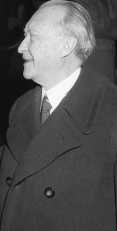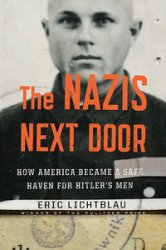In spite of his increasing aloofness from active politics, de Gaulle had proved an implacable critic of the regime throughout the decade. Because he had consistently presented himself as offering an alternative to a weak Fourth Republic and an answer to the nation’s growing frustrations, his return to power in June 1958 was a turning point. While the Fourth Republic had proved unable to transcend these frustrations, de Gaulle was determined to do so. From then on, France’s policies were shaped by his desire to restore the country’s international status and by his revisionist objectives with regard to the Cold War system.
De Gaulle’s foremost ambition was to reestablish France’s "rank." This implied, first of all, the restoration of internal stability and international credibility - hence the tailor-made, presidential constitution of the Fifth Republic, which gave him and his successors a robust instrument to assert French influence in international politics. His next priority was to solve the Algerian problem, which severely reduced France’s margin of maneuver. Although this was by no means a foregone conclusion in 1958, de Gaulle quickly understood that no solution short of Algeria’s independence would allow the country to regain a diplomatic "fTee hand." This result was achieved in July 1962, putting an end to a painful decolonization and enabling France to adopt a higher profile on the world scene. Finally, while de Gaulle fully recognized France’s status as a medium power, he also understood that the country’s ability to regain international influence would be a function of the fundamentals of power, whether economic or military. In this respect, France’s economic growth and dynamism in the 1960s were exceptionally strong, enabling de Gaulle to move ahead and develop France’s nuclear deterrent, which became a reality when the "force de frappe" went operational in 1964. It was on this solid ground that de Gaulle would soon base his policy of challenging the Cold War status quo.
De Gaulle’s ambition to restore France’s rank was indeed inseparable from his determination to transform the international system as a whole. By the time of his return to power, his dissatisfaction with the established order was no secret: although he had essentially been a cold warrior during his opposition years, he had developed a long-term vision of the end of the Cold War, a vision that stemmed from a combination of historical analysis and political anticipation. First, Communism in the East was not eternal. Sooner or later, the Soviet Union would cease to be and Russia would reappear as a "normal” power - though not necessarily a benign one. In fact, de Gaulle believed that,
Under the mask of ideology, Stalin and his successors in many ways behaved internationally as the followers of the tsars. As for East European countries, de Gaulle thought they would eventually free themselves from Soviet tutelage and regain their national personalities. Second, America’s role as a European power would also prove transitory. Once the Soviet threat receded, the United States would inevitably withdraw and return to its traditional aloofness from the Old World, thus allowing Western Europe to regain its autonomy. Hence, for de Gaulle, the prevailing East-West order was doomed, at least in the long run. Down the road, the loosening of the superpowers’ grip would lead to the obsolescence of the bloc system, allowing for the reemergence of European nations "from the Atlantic to the Urals." Needless to say, France, in this vision, would play a prominent role, in particular as the leader of an assertive, political Western European "grouping" that de Gaulle had envisioned since World War II. After he came to power in 1958, de Gaulle labored diligently to move beyond "Yalta" and to realize this vision of a transformed international system.245
In spite ofearly attempts at engaging the Soviet Union (Khrushchev made a colorful but rather unproductive visit to France in 1960), de Gaulle’s international policies in the first years focused primarily on the Western bloc, a priority which reflected his growing dissatisfaction with the existing Atlantic order and his conviction of the need for a profound overhaul of the alliance in accordance with his long-term vision. His views were outlined in the memorandum of September 1958 that he sent to President Dwight D. Eisenhower and Prime Minister Harold Macmillan, in which he famously advocated a tripartite "directorate" of the United States, Britain, and France in the alliance. When Eisenhower rejected the idea and when the incoming Kennedy administration reiterated US disapproval, de Gaulle tried to use the lever of Franco-German cooperation and European unification: hence the Fouchet Plan of 1961-62, a blueprint to build the European Economic Community (EEC) into an intergovernmental "union of states" endowed with a large degree of strategic autonomy vis-a-vis the United States. The idea, however, was defeated in the spring of 1962 as a result of overt hostility on the part of Europeanists and Atlanticists and tacit opposition in Washington. These initiatives nonetheless illustrated de Gaulle’s long-term aspirations to strengthen France’s position as an interlocutor in relations with the Soviet Union and the Eastern bloc and as the leader of a cohesive Western Europe in the pursuit of East-West detente. In fact, the Fouchet Plan was clearly premised on ideas similar to those of the US diplomat George Kennan who believed that a more assertive, less US-dominated Western Europe would be in a better position to engage the Soviet Union and thereby overcome the East-West divide. Still, until at least 1962, de Gaulle’s international revisionism had more to do with intra-West relations than with East-West transformation. Although both dimensions were linked from the outset, the priority was the redistribution of power within the Atlantic alliance rather than actively challenging "Yalta."
In any event, the East-West confrontation - which reached a peak during the second Berlin crisis in 1958-61 and the Cuban missile crisis in 1962 - precluded an assertive policy of reaching out to the East. De Gaulle’s attitude toward Moscow in the first few years of his term was unyielding: hence his refusal to negotiate over Berlin as long as the Soviets maintained a threatening posture and, most of all, his unconditional support of President John F. Kennedy’s


10. Charles de Gaulle and Konrad Adenauer shaking hands during their meeting in Bad Kreuznach, West Germany, in December 1958. De Gaulle made Franco-German friendship and cooperation a key foreign-policy aim.
Stance during the missile crisis. De Gaulle’s behavior was, first and foremost, an expression of his conviction that Western cohesion was indispensable in order to prevent Moscow from carrying out its threats, and that yielding to blackmail would only encourage further aggression. As a result, the French rebuffed negotiations with the East well into 1963. Of course, there were ulterior motives as well: de Gaulle’s show of solidarity with Konrad Adenauer over Berlin was meant to emphasize the importance of the Franco-German rapprochement (the two statesmen had developed a close relationship as early as September 1958 when they met at de Gaulle’s home in eastern France). Likewise, his attitude during the Cuban crisis demonstrated France’s commitment to the Western alliance in spite of an already diminishing French participation in NATO and increasing disagreements over nuclear strategy. De Gaulle, in other words, was strengthening his Western credentials with a view to his future East-West moves. Be that as it may, de Gaulle, in those years, was still perceived on the world scene as a consummate cold warrior




 World History
World History









